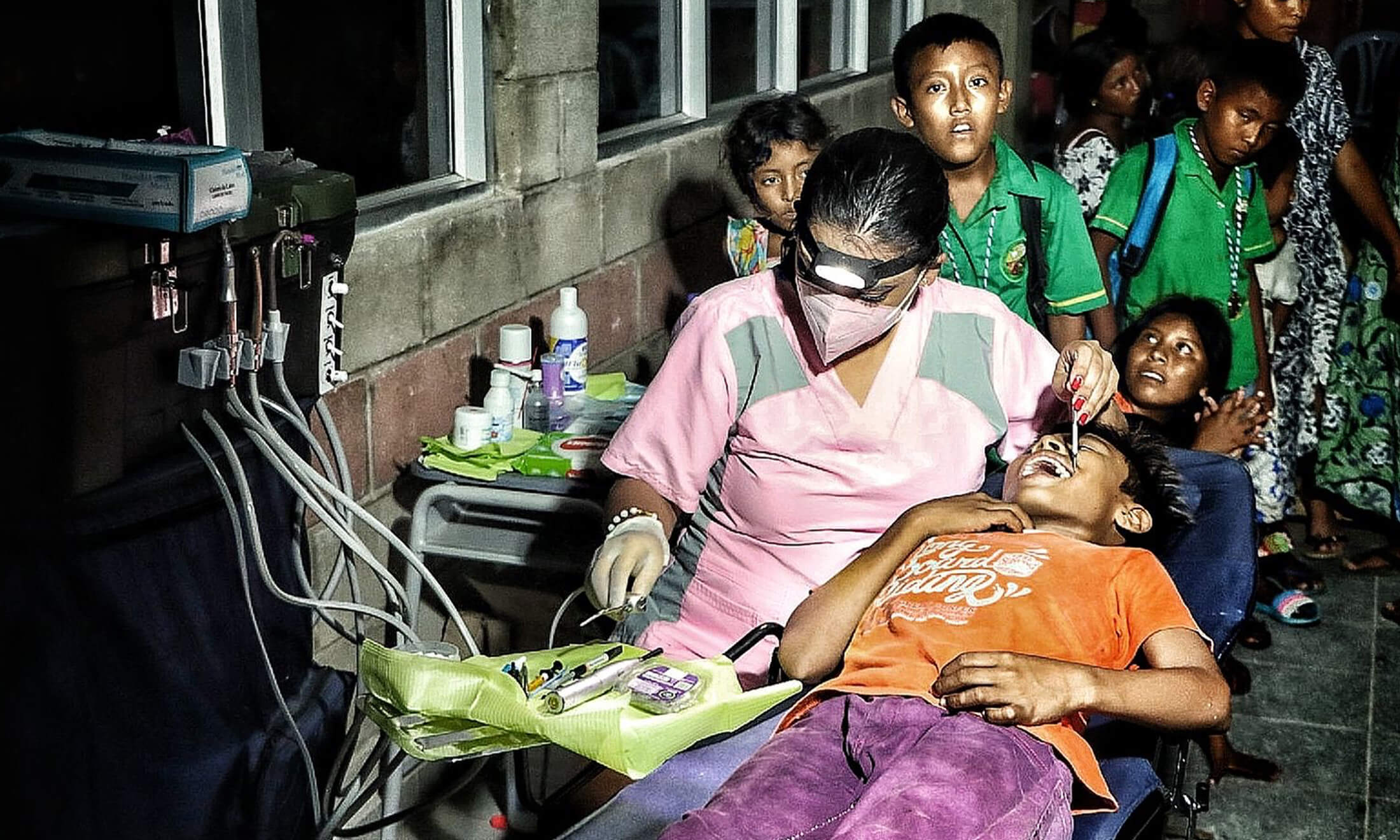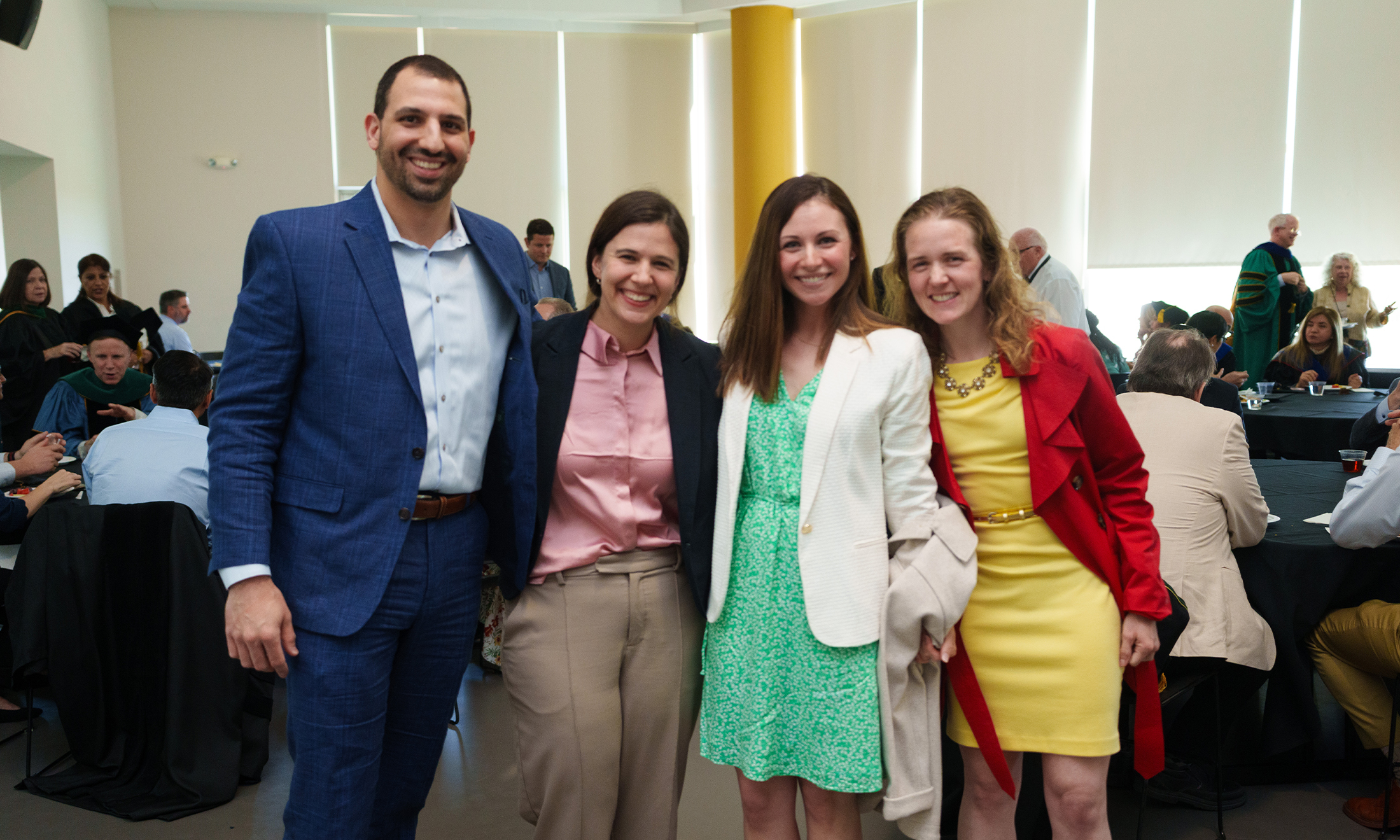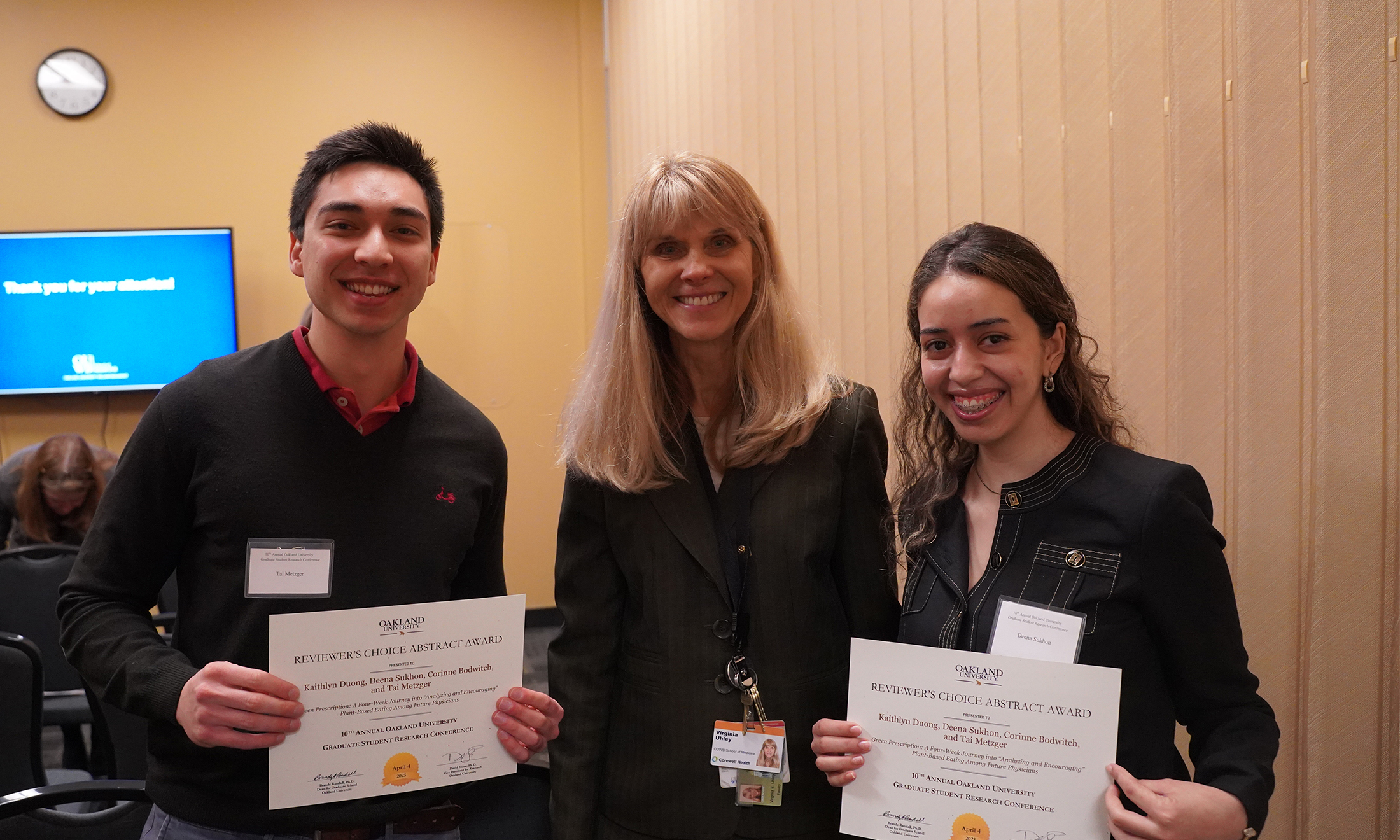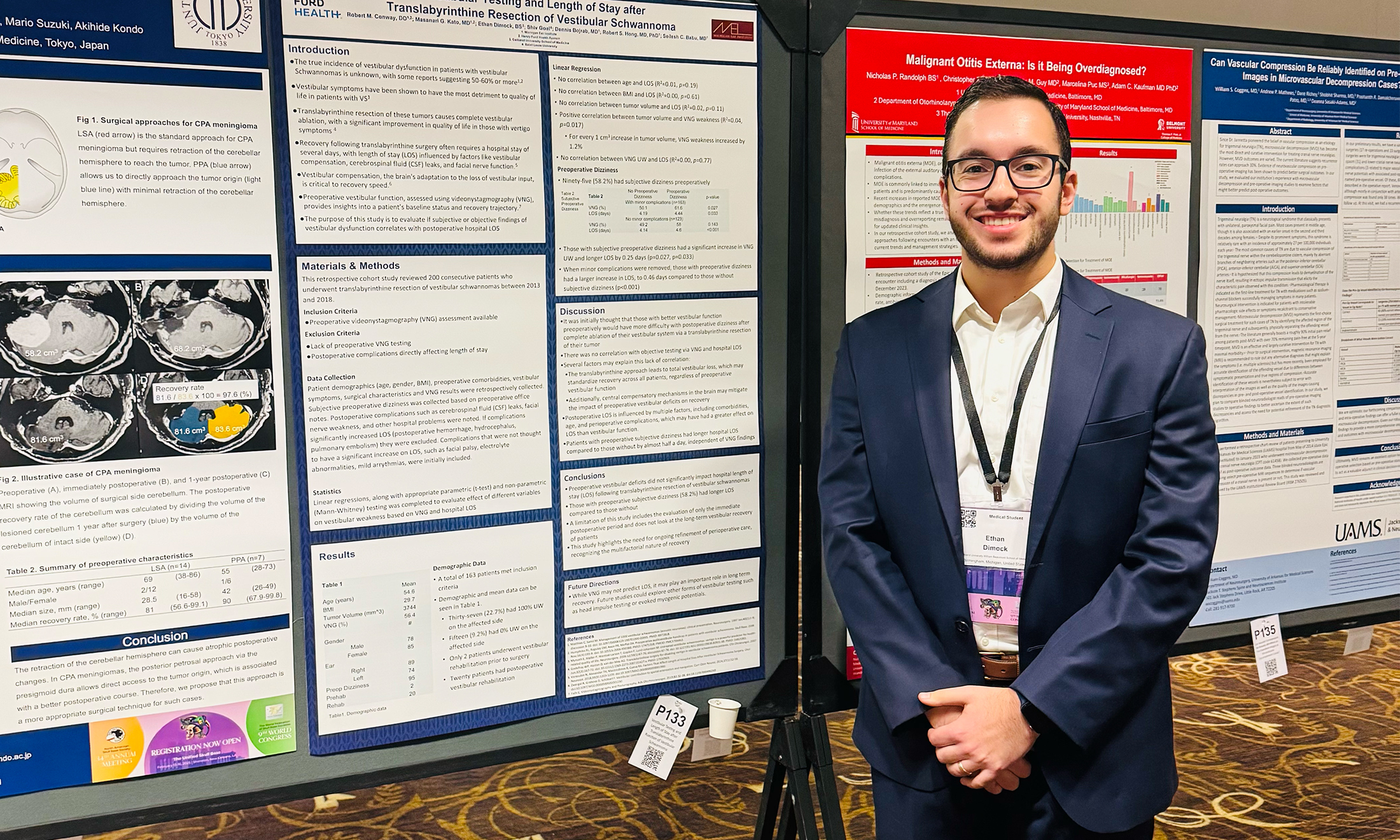Helping the global community
M3 at OUWB started a nonprofit in 2021 that continues to grow, impact underserved populations
As an undergraduate, Quinn Simpson went on a medical mission to Colombia and came away from the life-changing experience feeling compelled to do more.
The third-year Oakland University William Beaumont School of Medicine medical student wanted to do more after learning the region hadn’t been visited by a doctor in 15 years.
He wanted to do more because he saw things many would consider relatively simple issues — broken arms, for example — that had gone untreated and led to more chronic conditions.
He saw a lot more, too. So much, in fact, that he felt the trip had to be more than a one-time endeavor.
“Being there, seeing the needs and feeling the amount of appreciation for what we were doing, made me want to do it more,” says Simpson.
In 2021, he started a nonprofit called iHelp that continues to grow as Simpson furthers his studies at OUWB.
According to its website, iHelp “employs a collective, community-driven approach to educating, enriching, and fostering self-sufficiency in communities we serve. We collaborate with global partners to identify and address the social determinants of health (SDOH) within underserved communities and respond with innovative programs tailored to the unique challenges within those communities.”
It has served communities in Colombia, Ghana, El Salvador, and through a local outreach program in south Florida.
Simpson serves as co-founder, co-president, and chief executive officer. He is one of 12 on the leadership team that also includes M3 Corey Shafer, who serves as assistant director.
There are multiple upsides to the experiences gained through iHelp, he says, including some that go beyond the ability to help underserved populations.
“Having the ability to do things like this throughout medical school really reinstills why I’m in medicine,” he says. “It’s rewarding to give back to the people we help and really impact them for the better.”
‘It’s a great feeling’
Simpson grew up in Anchorage, Alaska. He moved to south Florida as a junior in high school to train in taekwondo with Juan Moreno, a three-time Olympian and two-time silver medalist. For his undergraduate degree, Simpson earned a bachelor’s degree in biology from Florida International University.
Simpson says he was drawn to OUWB because of the school’s strong emphasis on service.
“During my undergraduate years, I became significantly involved in global health operations, organizing medical mission trips and working for nonprofits that distributed medical supplies to global health initiatives worldwide,” he says. “I was eager to attend a school that prioritized service and delivering medical care to underserved and marginalized populations.”
Those experiences would lead him to start iHelp in 2021.
Other nonprofits have similar missions, but Simpson says he wanted to form a nonprofit so he could tailor it perfectly to a specific vision.
It was a vision of an organization that would provide medical supplies where needed — like OUWB community partner World Medical Relief. The vision also included providing medical care to underserved populations, and education related to social determinants of health — both in the U.S. and abroad.
“It’s about all of the things that affect someone’s health care,” says Quinn.
One example is the work iHelp has done with the Wayúu people of Columbia.
The Wayúu live in the Guajira Peninsula, where the desert meets the Caribbean Sea at the northernmost point of South America.
One in 10 Wayuu children die from malnutrition before the age of five.
According to the iHelp website, “daily life for the Wayúu involves some of the most extreme poverty, thirst, drought, environmental degradation, and malnutrition in Latin American history, as well as a severe migration flow.”
IHelp started by first identifying what would be most beneficial to the Wayúu.
“With international global health work, people can come in thinking they know what’s right and if they impose that, everything’s going to be better…that’s not how it works,” says Simpson. “You have to understand what they want and need and be very sensitive about their culture and their values.”
In the case of the Wayúu, the biggest needs identified were fixing water wells to go deeper because the water table is receding, and ensuring regular access to electricity, says Simpson. The need for more health care also was identified.
IHelp, along with other nonprofits, are collaborating to assist the Wayúu with all the identified needs.
“It’s a great feeling to help others like this,” says Simpson. “Just the look in people’s faces…you know they’re thankful and that’s very empowering.”
IHelp’s big 2023
Last year was a big year for iHelp.
In south Florida, where iHelp has a street medicine outreach program, the nonprofit successfully collaborated with another local organization, Aiding-Aids Inc., to acquire about $41,000 worth of toiletries and hygiene supplies.
“These supplies are being distributed to various local organizations and used to create supply bags for the homeless population we provide health care for,” says Simpson. “We've also initiated street outreach clinics in Miami, where we provide hygiene kits to homeless individuals on the streets and assess their health care needs. This expansion reflects our commitment to enhancing the health and well-being of the homeless population in south Florida.”
IHelp volunteers also developed a HIPAA-compliant Electronic Medical Record (EMR) system. The EMR is being implemented in iHelp’s free clinics in south Florida and across its international missions. Simpson says the introduction of this system “represents a significant milestone in our efforts to improve the quality of care we provide.”
iHelp also raised about $14,000 in monetary donations to support ongoing projects in Colombia.
Simpson went to Colombia for 10 days in December. Partnering with Fundación Madrid Campestre, iHelp worked on construction of two hydroponic water towers in Medellín. Simpson says the project is designed to help address the problems of food insecurity and malnutrition.
Further, he says the plan is to construct similar water systems in La Guajira, a region that suffers from higher rates of malnutrition and harsh environments for traditional farming methods.
While in Medellín, iHelp worked with a nonprofit called GoodsforGood to acquire toys, clothing, and other donations that were distributed for Christmas to 475 children.
Last, Simpson and Will Trevino, co-president and COO, iHelp, traveled to the Wayúu Kalouyachon Community. They were involved in the construction of two schools in the community and spent time learning as much as possible about the community and culture. Simpson calls it a “wonderful experience.”
“By investing in education, we hope to enable community members to pursue further educational opportunities, contributing to the upliftment of their community and the region,” he says. “We envision these students becoming professionals like doctors, engineers, teachers, and more, returning to their communities to make a lasting impact.”
Even more plans are in the works.
“Our short-term objectives include…creating a dedicated space for storing medical supplies, facilitating health care outreach, and medical and dental care services for the community,” he says. “We're collaborating with our local Colombian nonprofit partners, Atix Foundation, to achieve these goals and support our joint health care outreach programs.”
‘Actually running it’
Simpson and Shafer say their experiences with iHelp will one day help them be better doctors.
“In global health, you’re often practicing in very under-resourced settings, and you have to learn completely different techniques,” says Simpson. “It’s great to have those skills as a backup option because you might not always be able to rely on gadgets and machines. Say the power goes out, or there’s some sort of natural disaster.”
Simpson says it also serves as a good reminder of why he’s going into medicine.
Shafer says the experiences afforded through iHelp also help understand what it’s like to work with different cultures.
“We learn how to deal with patients who are not like us,” he says. “Learning how to appropriately treat patients in and out of a medical setting is an important skill to have.”
Yet another benefit, says Shafer, is learning how to work with an organization’s budget and how to handle funding. It’s an aspect of the nonprofit that allows for Simpson and Shafer to continue with their studies in Michigan while helping others thousands of miles away.
“It’s really rewarding because you know you’re making a difference in people’s lives,” says Shafer. “We’re not just one part of a machine…we’re actually running it and that’s a pretty powerful feeling.”
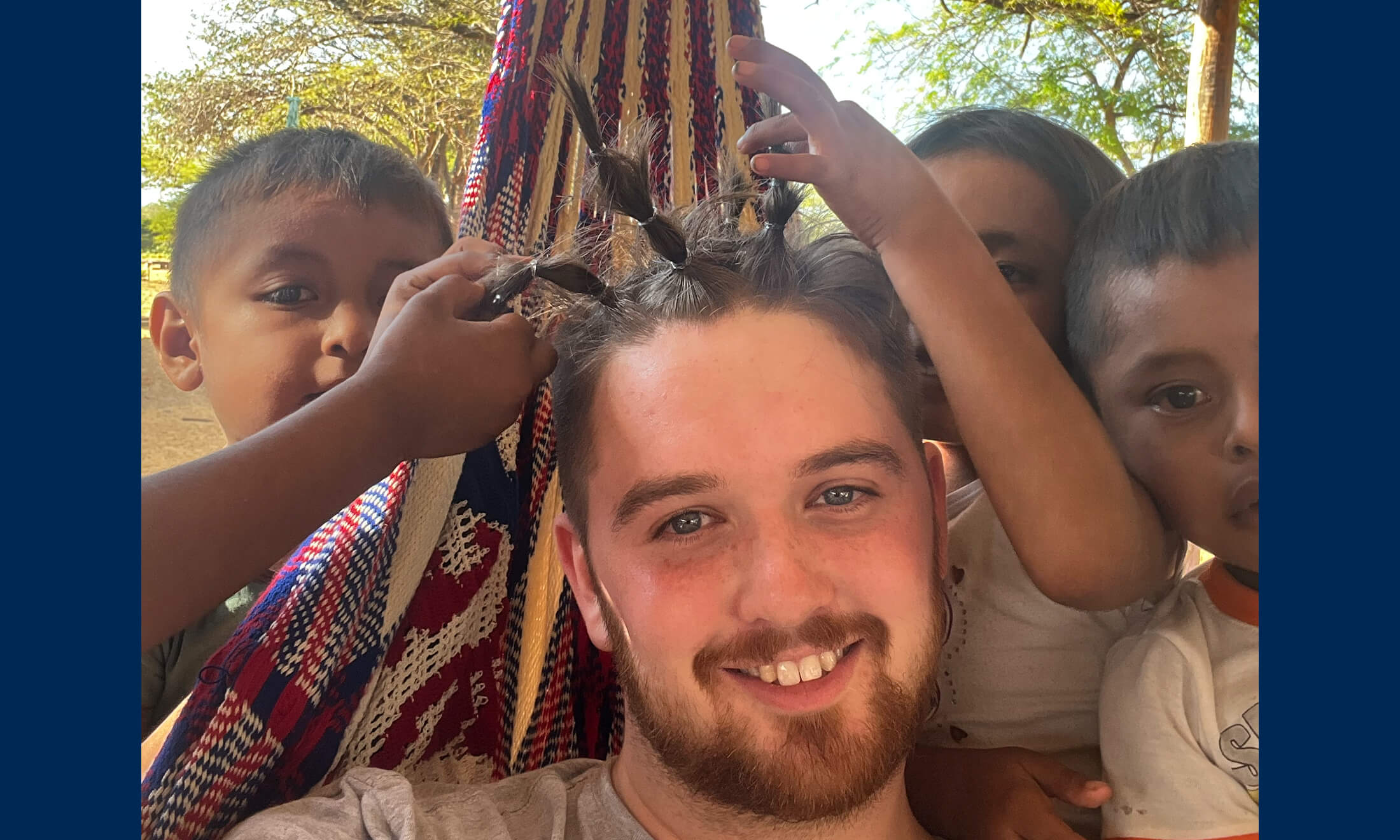
 February 01, 2024
February 01, 2024
 By Andrew Dietderich
By Andrew Dietderich